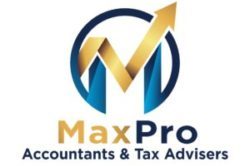We were astonished to see recent report from the influential Treasury Committee that has cast a harsh light on the inner workings of HMRC, revealing a concerning picture of outdated technology, rising costs, and declining productivity. The MPs didn’t mince their words, criticising the tax authority for its failure to modernise its legacy IT systems and the lack of a concrete plan for the future. This technological stagnation isn’t just an internal headache for HMRC; it poses a significant risk to the productivity of their teams and the level of service that businesses and individuals across the UK can expect.
The report highlighted several key areas of concern. Firstly, the unacceptably high compliance costs faced by businesses are a major burden. Secondly, the unexpectedly steep transition costs associated with the expansion of Making Tax Digital for Income Tax have raised eyebrows and concerns about the financial impact on landlords, the self-employed, and sole traders. Adding to this worrying picture is the decline in productivity within HMRC’s compliance teams, suggesting that current strategies aren’t delivering the desired results.
Perhaps one of the most striking findings is HMRC’s continued reliance on outdated communication methods. In a digital age, the fact that 14 million pieces of post are handled by HMRC annually paints a clear picture of an organisation struggling to keep pace with the 21st century. This reliance on paper not only adds to administrative costs but also creates inefficiencies and delays for taxpayers.
The core of the problem appears to lie in HMRC’s ageing IT infrastructure. The Committee warned that these outdated systems lead to lower levels of security, reduced reliability, and increased costs for any necessary system changes. Worryingly, MPs noted that the UK is falling behind other nations with more advanced tax systems, lacking even basic features like pre-populated tax returns and a swift move towards digital invoicing.
While acknowledging the scale and complexity of HMRC’s IT estate, the Committee expressed concern that the modernisation efforts are taking far too long and costing more than initially anticipated. The report revealed that budget intended for IT upgrades was even diverted to other priorities in the past year. Despite repeated requests, HMRC has been unable to provide a firm completion date for the IT overhaul, citing dependence on their spending review settlement. The Committee has now called for a firm timetable by the end of September.
The Chair of the Committee, Sir Geoffrey Clifton-Brown MP, didn’t hold back, stating that it’s time for HMRC to “prioritise modernising its own systems so that it is fit to enter the second quarter of the 21st century,” describing the current reliance on post as making the authority a “lumbering dinosaur.”
The report also shone a light on the costly expansion of Making Tax Digital for Income Tax, highlighting that affected taxpayers face an estimated £500 million in transition costs alone. Concerns were raised about the lack of strong evidence suggesting significant productivity improvements for VAT traders following the initial introduction of MTD.
Furthermore, trust in HMRC is worryingly low among the public, exacerbated by poor service levels, complex tax rules, and reduced access to call centres. The sheer volume of tax policy changes in recent years – 240 in just two years – also suggests a lack of focus on simplification.
While HMRC states it is investing to modernise and reform the tax system, and acknowledges the potential of technologies like AI, the reliance on legacy systems is hindering progress. The Committee has urged HMRC to provide a clear plan for leveraging new technologies to improve services and productivity.
The findings of this report paint a stark picture of an organisation grappling with outdated systems and processes. For businesses and individuals navigating the complexities of the UK tax system, this raises concerns about efficiency, cost, and the overall experience of dealing with HMRC.
Are you, or your business feeling the strain of navigating an increasingly complex tax landscape? Contact our team HERE to discuss how we can help you manage your tax obligations efficiently and effectively.
